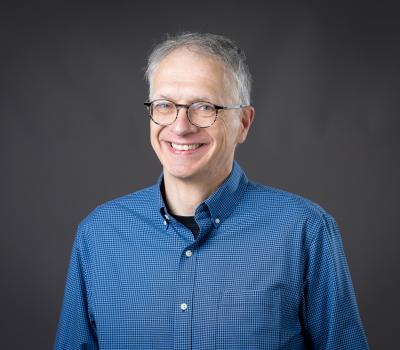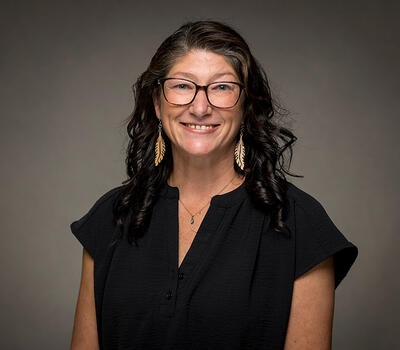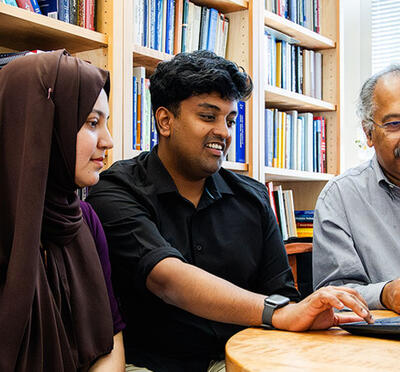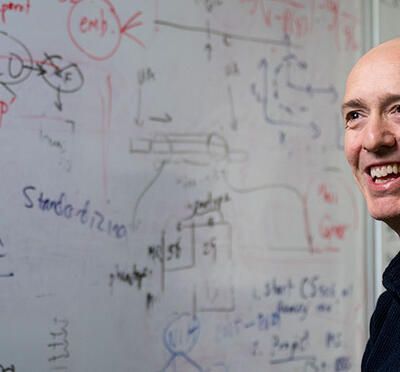Computer science, historically, has not been a welcoming place for women and people of color. This inequity persists to this day, even as industries scramble to fill available positions in the field. Recognizing the benefits of a larger and more diverse workforce, Oregon tech companies, including Intel, signed a tech diversity pledge in 2015.
Researchers at Oregon State University are working to broaden interest in computer science by helping schools deliver a curriculum that breaks through the typical barriers for students in underrepresented groups.
“In the past, computer science has been taught as programming. But in our world today, computer science is much broader,” said Jill Hubbard, instructor of computer science at OSU-Cascades. “And if we don’t give our kids — all of our kids — that fundamental knowledge, we’re going to further create a society of haves and have-nots. That’s what this is all about, that bigger picture of democratizing computer science.”
The National Science Foundation initiated a nationwide effort during the Obama administration to provide inclusive computer science learning opportunities in K-12 schools. To support this effort, NSF has awarded “Computer Science for All” grants throughout the nation.
CS FOR OREGON HIGH SCHOOLS
Hubbard is co-principal investigator on a CS for All grant called CS for Oregon, which advises statewide policy for computer science education and provides support for high school teachers and undergraduates majoring in education. The program has impacted 40 Oregon schools, including those with the most diverse student populations in the state. The project, now in its third year, is headed by James Hook, associate dean of engineering and computer science at Portland State University, in collaboration with Joanna Goode, Sommerville Knight Professor in the College of Education at the University of Oregon, another coprincipal investigator.
Over the past three summers, 52 teachers have been trained on an evidence-based introductory computer science curriculum. Hubbard leads the professional development, which typically happens at OSU-Cascades during the summer, and works with teachers quarterly during the school year. This year, all trainings were conducted online instead of in person.
With a curriculum based on inquiry rather than lecture, teachers act as facilitators and the students shape the conversation to their interests. Through discussion and activities, students are introduced to human-computer interaction, problem-solving, web design, programming, computing and data analysis, and robotics. The coursework includes computer science concepts and computational practices, using a variety of tools and platforms.
“What makes it accessible to all kids is that we’re not sitting here coding every day,” said Donald Carter, who teaches at Bend Senior High School. “Coding is great for just a narrow demographic of kids, and that’s been the historic problem. We are incorporating arts and crafts and design, so everybody has a little buy-in to the class.”
TEACHING WITH TABLETOP GAMES
Jennifer Parham-Mocello, assistant professor of computer science, is leading another team to teach computational thinking with tabletop games, such as Connect Four, with support of a CS for All grant. The idea grew out of the need to develop a curriculum that would not require schools to obtain and maintain expensive technology, as well as a desire to make the classes interesting to a broader group of students.
“The premise of this grant is that there needs to be a variety of alternatives for people to get involved in computation,” Parham-Mocello said. “It doesn’t need to always be about a programming language, and especially initially because that can be very intimidating to some students.”
The curriculum is designed for two levels: An introduction to computational thinking for sixth graders using familiar tabletop games, and an introduction to programming for seventh graders using a domain-specific teaching language for board games, developed by co-principal investigator Martin Erwig, Stretch Professor of Computer Science.
The curriculum was created in partnership with teachers and administrators at Linus Pauling Middle School in Corvallis, a Spanish/English dual language school. The curriculum was tested in two camps over the summer, and the full classes began in fall 2020. Maggie Niess, emeritus professor of education and co-principal investigator, is helping to assess how well the curriculum is working.
ADJUSTING TO REMOTE TEACHING
Because of the coronavirus pandemic, the team had to quickly adjust to delivering content remotely, using online games. The modification turned out to be a boon.
“It worked to our advantage because the students had to communicate their moves formally using numbered rows and columns. And that’s what computer science is about,” Parham-Mocello said.
During the camps, the teachers also got a chance to practice the tools and techniques they would need for teaching remotely this school year.
“My experience teaching in the summer camp allowed me to help my peers as we launched the school year online,” said Kina Bellah, who teaches at Linus Pauling.
But there was also a bigger-picture lesson. “Programs like these can help bring an interest and understanding of computer science within reach,” Bellah said.




